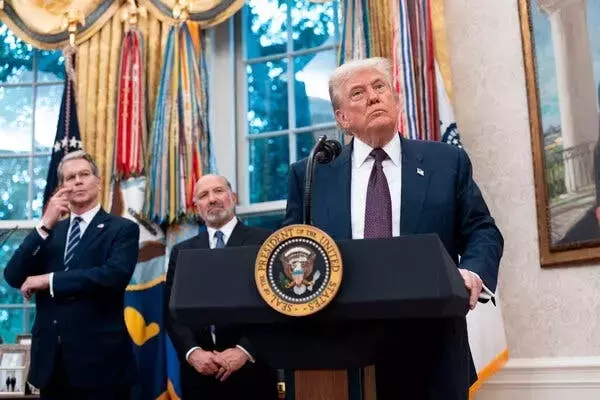
A significant shift in global trade relations has commenced with the implementation of new tariffs by the United States. This measure, affecting a wide array of trading partners and imported goods, signals a new chapter in international commerce. The economic consequences are varied, with certain industries experiencing immediate pressure, while broader markets demonstrate a degree of unexpected stability. This resilience is attributed, in part, to multinational corporations successfully identifying and capitalizing on consumer demand in markets beyond the US borders, suggesting a complex and evolving landscape for international business operations.
The recently enacted tariffs represent an escalation of protectionist trade policies. This move has prompted a flurry of activity as affected nations and industries strive to renegotiate trade terms and mitigate adverse impacts. For instance, major automotive manufacturers in Japan have already begun to feel the strain, adjusting their financial forecasts to account for the additional costs imposed by these new duties. Despite these challenges, the broader financial markets, particularly in Asia and Europe, have largely absorbed the news without significant downturns. This measured reaction is partly due to robust corporate earnings reports, indicating that many companies are effectively navigating the altered trade environment.
Notably, companies deeply embedded in global supply chains, such as the shipping giant Maersk, alongside numerous Chinese export firms, have managed to maintain robust demand for their services and products outside the American market. This diversification has provided a buffer against the immediate effects of the new tariffs. On the domestic front, key US stock indices, including the S&P 500 and Nasdaq Composite, have also shown positive momentum. This overall market performance suggests that, while the tariffs introduce uncertainties, their immediate impact might be less severe than initially anticipated, at least for some sectors.
Further insights into the corporate response to these tariffs come from specific industry developments. Toyota, for example, announced a substantial financial hit from the new duties, leading to a downward revision of its annual profit projections. Conversely, certain overseas semiconductor manufacturers appear to have circumvented punitive tariffs by making strategic investments in US-based production facilities, demonstrating a direct correlation between compliance with US demands and tariff exemptions. This strategy highlights a pathway for companies to mitigate risk within the new trade framework.
Furthermore, discussions between high-profile business leaders and US officials underscore the ongoing negotiations and adaptations within the corporate world. Apple's recent commitment to inject a substantial amount of capital into US operations, following a meeting between its CEO and the US President, exemplifies the strategic maneuvers companies are undertaking. This move raises questions about the potential for such investments to influence future tariff decisions, especially concerning technology products. It also brings into focus Apple's history of making significant domestic investment pledges and the subsequent follow-through, a dynamic that will be closely monitored.
The global economic landscape is currently navigating the complexities introduced by increased trade barriers. While some industries face considerable financial adjustments, the broader market appears to be recalibrating, driven by corporate adaptability and the discovery of alternative market opportunities. This period of transition will likely continue to reshape international trade flows and corporate investment strategies, as businesses and nations strive to optimize their positions in a dynamically evolving global economy.
